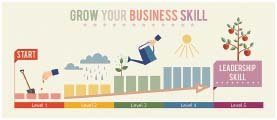What Are Essential Skills?
In employment, essential skills are defined as the knowledge and abilities you must have in order to perform your job well. The exact skills you may need will vary widely depending on your type of employment. However, there are certain basic skills that are necessary to the performance of most jobs in the modern workplace. These include reading, writing, the ability to work with numbers, and basic computer use. Interpersonal skills are also increasingly important in the workplace. These include communication and problem-solving skills and the ability to work with others. Although we may think of these activities as personality traits, they are in fact skills that can be learned and improved. Even punctuality, patience, and responsibility are important learnable job skills.
Your job may require a specific set of skills. These may include the ability to use certain tools, expertise in sales, or the ability to read and use documents such as graphs, charts, and blueprints. Some jobs may require you to be skilled at public speaking, managing other employees, or enforcing company rules. If you work as a caregiver, you may need to be skilled in administering medication and communicating with people with disabilities. Cashiers need skills in handling money and working with the public. Store managers can do a better job if they are skilled in motivating their workers and tracking the store's income and expenses.
What Does It Mean to Maintain and Refresh Skills?

in your field.
Refresher courses are used to help workers relearn and update skills that have been out of use. In the previous example of the forklift, if you have not maintained regular use of the machine, you may find that you have to take a training program to refresh your skills. Refresher classes are especially useful for those who have been out of work for long periods. A nurse who takes time away from the job to raise her children may find a refresher course necessary when she chooses to go back to work.
Why Do I Need to Refresh My Skills?

Constant maintenance and refreshment of job skills has become increasingly important in the competitive atmosphere of the modern job market. Keeping your skills honed and up to date will improve your ability to perform your job well and increase your value to your employer. If you are seeking a new job, evidence that you have worked to keep your skills current will demonstrate your commitment and enthusiasm to prospective employers. In practical terms, skill maintenance will make it easier to do your job, stay on top of new developments in your field, and advance in your career.
As modern business practices evolve at a faster and faster rate, workers may find it hard to keep up with new policies and technology. Rapid advances in computer technology can be especially difficult to navigate. Because workers are frequently expected to use new equipment and programs with only minimal training, continuing education in computer skills can help older workers and others who feel “left behind” by system changes. Even though they may be practiced daily, interpersonal skills can also benefit from intentional maintenance. Many work situations call for an increasing amount of communication and teamwork. The skills required to work well together are sometimes overlooked or dismissed as “common

During the course of your career, it is essential to maintain core skills and incorporate new skills that will grow and develop over time. ©ISTOCK.COM/PAULMALYUGIN.
sense.” However, programs are available to teach these interpersonal skills, and even longtime workers and managers can benefit from reexamining and updating their communication and cooperation skills.